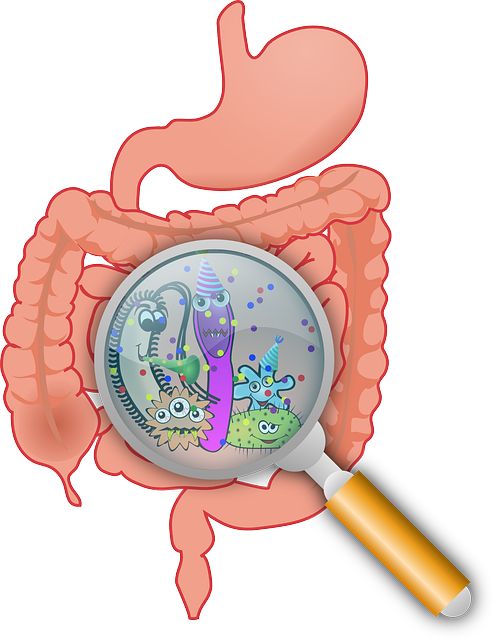Gut Microbiota Play Role In Neurological Disorders
The gut microbiota plays a critical role in the bidirectional connections between the gut and the neurological system. It interacts with the central nervous system (CNS) through modulating brain chemistry and altering neuro-endocrine systems that are involved in stress response, anxiety, and memory function, among other things.
Author:Suleman ShahReviewer:Han JuDec 22, 2022142.6K Shares1.9M Views

According to research, the gut microbiotaplays a critical role in the bidirectional connections between the gut and the neurological system. It interacts with the central nervous system (CNS) through modulating brain chemistry and altering neuro-endocrine systems that are involved in stress response, anxiety, and memory function, among other things. According to growing clinical and experimental findings, the gut microbiota is becoming implicated as a potential important susceptibility factor for neurological illnesses such as Alzheimer's disease, autism spectrum disorder, multiple sclerosis, Parkinson's disease, and stroke.
What Types Of Disorders Have Been Linked To The Gut Microbiome?
Recent years have seen a significant surge in research into the role of the gut microbiome in modifying brain function, albeit this has primarily been done in animal models. A growing body of clinical and experimental data suggests that the microbiome may have a role in developing neurological illnesses such as Alzheimer's disease, autism spectrum disorder, multiple sclerosis, Parkinson's disease, and stroke, among others. Several cross-sectional clinical investigations have supported the idea that changing microbial composition contributes to the pathogenesis of such disorders.
The makeup of the microbiome, on the other hand, is altered by a variety of variables, including nutrition and activity. Emerging data suggest that gut microbes have a role in regulating brain activity and cognitive functioning. Microbes mediate communication between the metabolic, peripheral immunological, and central neurological systems through the microbiota-gut-brain axis. However, it is unclear how the gut microbiota and neurons in the brain interact with one another or how these interactions influence normal brain functioning and cognition.
The Contribution Of Gut Microbiota Brain Axis In The Development Of Brain Disorders
Insights into gut-brain crosstalk have shown a complex communication mechanism that not only guarantees correct gastrointestinal homeostasis maintenance but is also likely to have numerous implications on effect, motivation, and higher cognitive functioning. The intricacy of these connections is encapsulated in the term "gut-brain axis." Its mission is to monitor and integrate gut activities and connect the brain's emotional and cognitive centers with peripheral intestine functions and mechanisms, including immune activation, intestinal permeability, enteric reflex, and entero-endocrine communication.
The most persuasive evidence of a gut microbe-brain connection in humans developed more than 20 years ago from observing frequently significant recovery in individuals with hepatic encephalopathy following oral antibiotic therapy. Meanwhile, new evidence supports the function of microbiota in regulating anxiety and depressive-like behaviors, as well as, more recently, dysbiosis in autism. In reality, depending on the severity of the condition, autistic people have different microbiota. Dysbiosis can also arise in functional gastrointestinal diseases, frequently associated with mood disorders and are connected to a disturbance in the gut-brain axis. Microbiota also modulates stress reactivity and anxiety-like behaviour in germ-free animals and regulates the set point for hypothalamic pituitary adrenal axis activity.
Does Gut Microbiome Affect The Brain?
Thousands of papers over the past decade have revealed that the billions of bacteria in the gut may significantly impact the brain's ability to function.
According to growing data, the gut microbiota has been linked to a growing number of gastrointestinal and extra gastrointestinal disorders. Several mental diseases, such as anxiety and depression, have been related to dysbiosis and inflammationof the gut, both of which are ubiquitous in today's culture. Anxiety, depression, epilepsy, and autism spectrum disorder (ASD) are all disorders of the brain that have been related to the gut microbiota, which is primarily responsible for this association.

Suleman Shah
Author
Suleman Shah is a researcher and freelance writer. As a researcher, he has worked with MNS University of Agriculture, Multan (Pakistan) and Texas A & M University (USA). He regularly writes science articles and blogs for science news website immersse.com and open access publishers OA Publishing London and Scientific Times. He loves to keep himself updated on scientific developments and convert these developments into everyday language to update the readers about the developments in the scientific era. His primary research focus is Plant sciences, and he contributed to this field by publishing his research in scientific journals and presenting his work at many Conferences.
Shah graduated from the University of Agriculture Faisalabad (Pakistan) and started his professional carrier with Jaffer Agro Services and later with the Agriculture Department of the Government of Pakistan. His research interest compelled and attracted him to proceed with his carrier in Plant sciences research. So, he started his Ph.D. in Soil Science at MNS University of Agriculture Multan (Pakistan). Later, he started working as a visiting scholar with Texas A&M University (USA).
Shah’s experience with big Open Excess publishers like Springers, Frontiers, MDPI, etc., testified to his belief in Open Access as a barrier-removing mechanism between researchers and the readers of their research. Shah believes that Open Access is revolutionizing the publication process and benefitting research in all fields.

Han Ju
Reviewer
Hello! I'm Han Ju, the heart behind World Wide Journals. My life is a unique tapestry woven from the threads of news, spirituality, and science, enriched by melodies from my guitar. Raised amidst tales of the ancient and the arcane, I developed a keen eye for the stories that truly matter. Through my work, I seek to bridge the seen with the unseen, marrying the rigor of science with the depth of spirituality.
Each article at World Wide Journals is a piece of this ongoing quest, blending analysis with personal reflection. Whether exploring quantum frontiers or strumming chords under the stars, my aim is to inspire and provoke thought, inviting you into a world where every discovery is a note in the grand symphony of existence.
Welcome aboard this journey of insight and exploration, where curiosity leads and music guides.
Latest Articles
Popular Articles